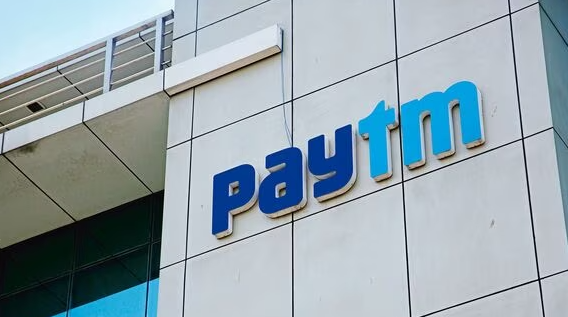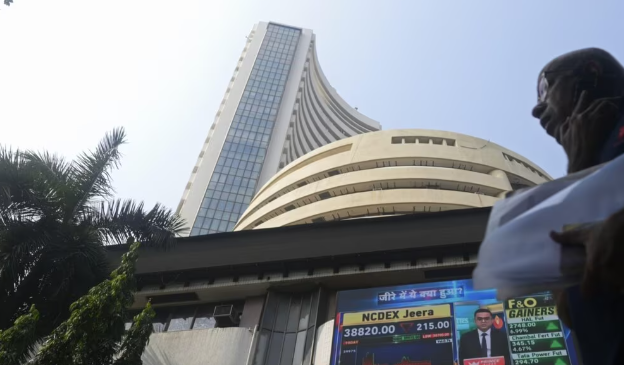
BSE and NSE Enforce 10% Daily Trading Limits on Paytm
BSE and NSE Slash Paytm Daily Trading Limits by 10%
In response to a tumultuous week for digital payments giant Paytm, India’s leading stock exchanges, the Bombay Stock Exchange (BSE) and the National Stock Exchange (NSE), have announced a reduction in the daily share trading limits for the company. Effective from Monday, the trading limits for Paytm have been slashed to 10%, down from the previous 20%, as confirmed by statements on the exchanges’ official websites.

The decision to impose these new limits comes in the wake of a significant downturn in Paytm’s stock value, precipitated by regulatory actions targeting the company’s banking arm. Following a regulatory crackdown, which prompted the Reserve Bank of India (RBI) to instruct Paytm’s banking unit to cease accepting fresh deposits in its accounts or popular wallets from March onwards, the stock market responded with a swift and substantial sell-off.
Paytm, India’s foremost digital payments app, relies heavily on its banking arm to facilitate transactions and manage user funds. Therefore, the regulatory directive issued to the banking unit carries profound implications for the company’s operational framework and financial stability.

The repercussions of these regulatory interventions have been keenly felt in the financial markets, as evidenced by the precipitous decline in Paytm’s market value. The company’s market capitalization plummeted to $3.7 billion following a staggering $2 billion loss in market value on the Mumbai bourses over the course of the week. Notably, Paytm’s stock experienced the maximum daily decline of 20% on both Thursday and Friday, reflecting the severity of investor concerns and the ensuing market volatility.

The decision by BSE and NSE to reduce Paytm’s daily trading limits underscores the need for cautious risk management amid the ongoing uncertainty surrounding the company’s regulatory compliance and financial outlook. By imposing stricter limits on trading activity, the exchanges aim to mitigate the potential for further market volatility and stabilize investor sentiment in the face of evolving regulatory developments.
Furthermore, the regulatory scrutiny facing Paytm serves as a stark reminder of the challenges inherent in operating within the rapidly evolving landscape of digital finance. As technology-driven innovations continue to disrupt traditional financial paradigms, regulatory authorities are tasked with striking a delicate balance between fostering innovation and safeguarding consumer interests.
In navigating these regulatory complexities, companies like Paytm must demonstrate a commitment to transparency, compliance, and accountability to build and maintain trust among stakeholders. While regulatory interventions may pose short-term challenges, they also present opportunities for industry participants to reassess their business models, strengthen governance mechanisms, and enhance risk management protocols.
Looking ahead, the trajectory of Paytm’s fortunes will depend on its ability to navigate the regulatory landscape effectively, adapt to evolving market dynamics, and uphold the trust and confidence of its users and investors alike. As regulatory uncertainties persist, stakeholders across the digital payments ecosystem must remain vigilant, resilient, and responsive to emerging challenges and opportunities in order to ensure the continued growth and sustainability of India’s digital economy.
Amidst the whirlwind of regulatory actions and market turbulence, Paytm finds itself at a crossroads, grappling with the fallout from regulatory scrutiny and investor apprehensions. As the company navigates these challenges, it faces a critical juncture that will shape its trajectory in the digital payments landscape and determine its long-term viability.
The decision by the Bombay Stock Exchange (BSE) and the National Stock Exchange (NSE) to reduce Paytm’s daily share trading limits reflects a broader effort to mitigate market volatility and restore investor confidence amidst the uncertainty surrounding the company’s regulatory compliance. By imposing stricter trading limits, the exchanges seek to temper excessive speculation and promote stability in the trading of Paytm’s shares, thereby safeguarding the interests of investors and market participants.
However, the implications of these regulatory interventions extend far beyond the realm of financial markets. At its core, the regulatory crackdown on Paytm’s banking unit raises fundamental questions about the future of digital finance in India and the regulatory framework governing fintech companies operating within the country’s burgeoning digital ecosystem.
For the latest updates-click here.

